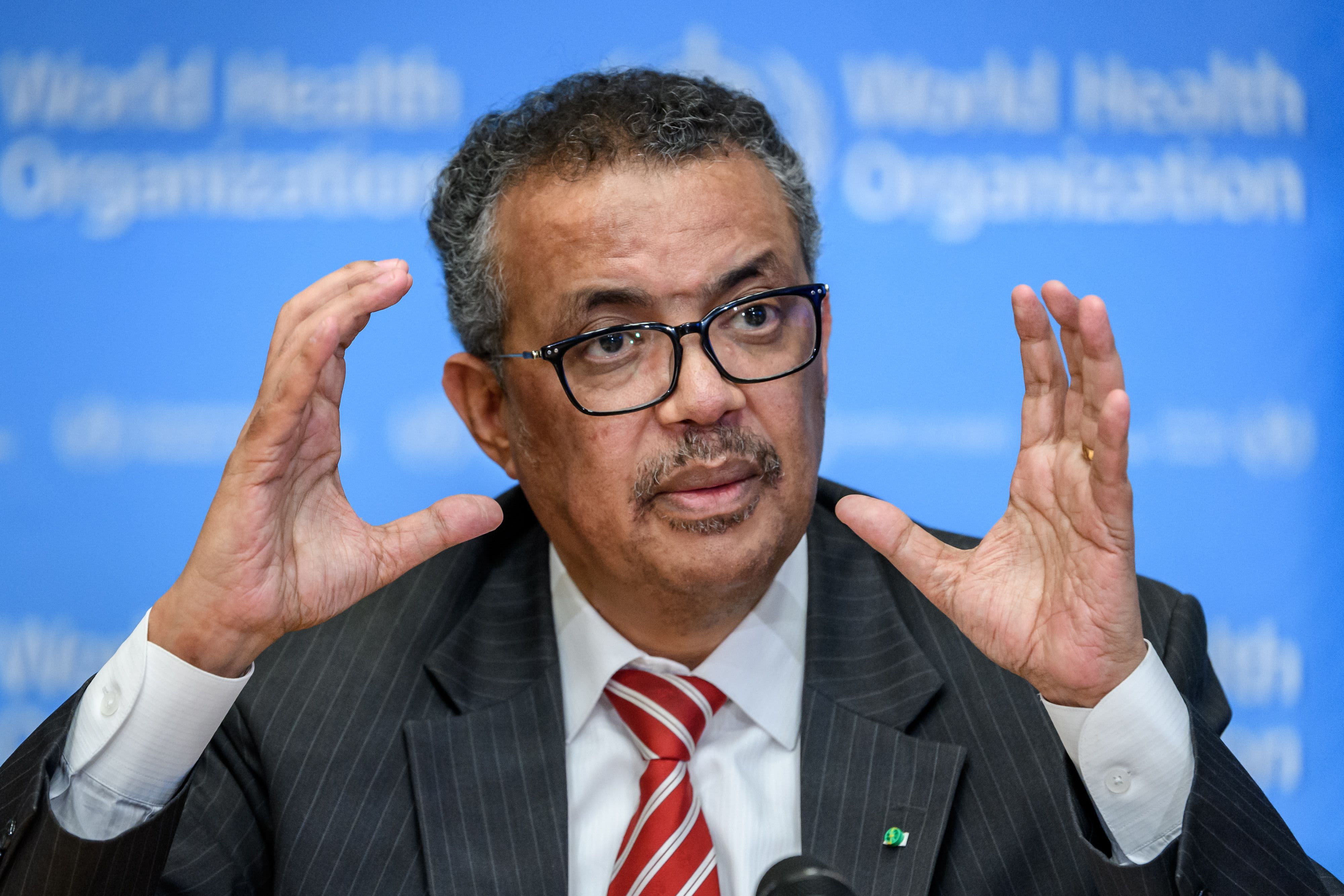World Health Organization (WHO) Director-General Tedros Adhanom Ghebreyesus attends a daily press briefing on COVID-19, the disease caused by the novel coronavirus, at the WHO heardquaters in Geneva on March 11, 2020.
Fabrice Coffrini | AFP | Getty Images
The World Health Organization issued a warning Friday about coronavirus testing, saying there’s no evidence serological tests can show whether a person has immunity or no longer at risk of becoming reinfected.
“These antibody tests will be able to measure that level of serology presence, that level of antibodies, but that does not mean that somebody with antibodies” are immune, Dr. Maria Van Kerkhove, head of WHO’s emerging diseases and zoonosis unit, told reporters during a press conference at the agency’s headquarters in Geneva.
So-called serological, or antibody, tests can indicate whether a person has had Covid-19 in the past and was either asymptomatic or recovered.
In the U.S., antibody tests have just begun to roll out. President Donald Trump has recommended states use the tests as they start relaxing some of the strict social distancing measures imposed to combat the spread of the coronavirus pandemic, which has infected more than 671,000 people in the United States.
Kerkhove said that WHO officials discovered many countries suggesting these tests would be able to “capture what they think will be a measure of immunity.”
“What the use of these tests will do will measure the level of antibodies. It’s a response that the body has a week or two later after they’ve been infected with this virus,” she said. “Right now, we have no evidence that the use of a serological test can show that an individual is immune or protected from reinfection.”
Earlier this week, WHO officials said not all people who recover from the coronavirus have the antibodies to fight a second infection, raising concern that patients may not develop immunity after surviving Covid-19.
“With regards to recovery and then reinfection, I believe we do not have the answers to that. That is an unknown,” Dr. Mike Ryan, executive director of WHO’s emergencies program, said at a press conference at the organization’s Geneva headquarters on Monday.
A preliminary study of patients in Shanghai found that some patients had “no detectable antibody response” while others had a very high response, Kerkhove said Monday. Whether the patients who had a strong antibody response were immune to a second infection is “a separate question,” she added.
This is a developing story. Please check back for updates.
